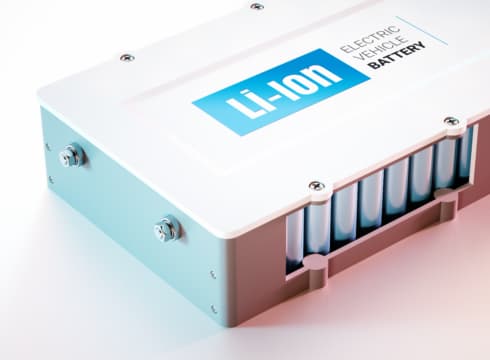International Battery Company (IBC) has signed a Memorandum of Understanding (MoU) with the Karnataka government to set up a lithium-ion manufacturing unit
The manufacturing facility, which will come up on a 100-acre land in the Bengaluru Rural district, will begin production by 2025
The development is expected to boost Karnataka’s credentials as a manufacturing hub as iPhone maker Foxconn is also looking to invest $1 Bn to set up a plant in the state
Inc42 Daily Brief
Stay Ahead With Daily News & Analysis on India’s Tech & Startup Economy
In a further boost to Karnataka’s image as a manufacturing hub, US-based International Battery Company (IBC) has signed a Memorandum of Understanding (MoU) with the state government to establish a lithium-ion manufacturing unit.
The company will invest INR 8,000 Cr to set up the facility on a 100-acre land in the Bengaluru rural district.
Production at the plant will begin by 2025. IBC aims to achieve a capacity of 10 gigawatts by 2028, Gunjan Krishna, commissioner in Karnataka’s Industries and Commerce Department, told Bloomberg News.
The MoU was signed in presence of Karnataka’s minister for large and medium industries, MB Patil.
The minister said that with the commissioning of IBC’s plant, Karnataka will have its second lithium-ion battery manufacturing facility. This, he said, will position the state as a frontrunner in lithium-ion battery production on a national scale.
At a time when the Centre is promoting India as a global manufacturing hub and many international companies have moved or are in the process of moving some of their production to India, IBC’s investment is expected to further improve Karnataka’s credentials as a manufacturing destination. iPhone maker Foxconn is also looking to invest $1 Bn in Karnataka to set up a manufacturing plant.
The latest development comes at a time when the Centre as well as various state governments are promoting electric vehicles (EVs). This has resulted in a number of EV and related startups springing up in the country over the last few years.
With startups like Ola Electric, Ather Energy, Log9 Materials, CHARGE+ZONE, Vidyut, and RevFin leading the shift, India plans to have 30% electric private cars, 70% electric commercial vehicles, and 80% electric two- and three-wheelers by 2030.
In a recent report, government think tank NITI Aayog suggested providing incentives in the form of production-linked incentive (PLI) schemes, tax benefits, and royalties to boost EV battery manufacturing in the country.
{{#name}}{{name}}{{/name}}{{^name}}-{{/name}}
{{#description}}{{description}}...{{/description}}{{^description}}-{{/description}}
Note: We at Inc42 take our ethics very seriously. More information about it can be found here.


